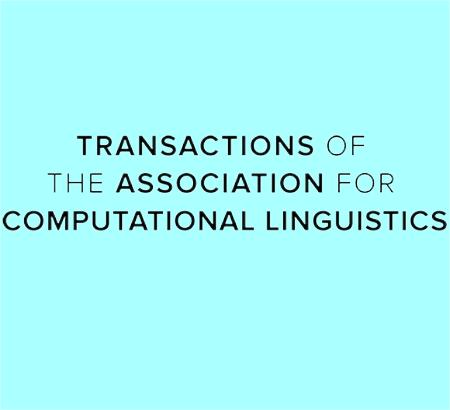Cross-functional Analysis of Generalization in Behavioral Learning
IF 4.2
1区 计算机科学
Q2 COMPUTER SCIENCE, ARTIFICIAL INTELLIGENCE
Transactions of the Association for Computational Linguistics
Pub Date : 2023-05-22
DOI:10.1162/tacl_a_00590
引用次数: 0
Abstract
Abstract In behavioral testing, system functionalities underrepresented in the standard evaluation setting (with a held-out test set) are validated through controlled input-output pairs. Optimizing performance on the behavioral tests during training (behavioral learning) would improve coverage of phenomena not sufficiently represented in the i.i.d. data and could lead to seemingly more robust models. However, there is the risk that the model narrowly captures spurious correlations from the behavioral test suite, leading to overestimation and misrepresentation of model performance—one of the original pitfalls of traditional evaluation. In this work, we introduce BeLUGA, an analysis method for evaluating behavioral learning considering generalization across dimensions of different granularity levels. We optimize behavior-specific loss functions and evaluate models on several partitions of the behavioral test suite controlled to leave out specific phenomena. An aggregate score measures generalization to unseen functionalities (or overfitting). We use BeLUGA to examine three representative NLP tasks (sentiment analysis, paraphrase identification, and reading comprehension) and compare the impact of a diverse set of regularization and domain generalization methods on generalization performance.1行为学习中泛化的跨职能分析
摘要在行为测试中,通过受控的输入-输出对来验证在标准评估设置(具有保留的测试集)中代表性不足的系统功能。在训练期间优化行为测试的表现(行为学习)将提高对i.i.d.数据中未充分表示的现象的覆盖率,并可能导致看似更稳健的模型。然而,存在这样的风险,即模型从行为测试套件中狭隘地捕捉到虚假的相关性,导致对模型性能的高估和失实陈述——这是传统评估的最初陷阱之一。在这项工作中,我们介绍了BeLUGA,这是一种评估行为学习的分析方法,考虑了不同粒度级别维度的泛化。我们优化了行为特定损失函数,并在行为测试套件的几个分区上评估了模型,这些分区被控制为忽略特定现象。聚合分数衡量对看不见的功能的泛化(或过拟合)。我们使用BeLUGA来检验三个具有代表性的NLP任务(情绪分析、转述识别和阅读理解),并比较一组不同的正则化和领域泛化方法对泛化性能的影响。1
本文章由计算机程序翻译,如有差异,请以英文原文为准。
求助全文
约1分钟内获得全文
求助全文
来源期刊
CiteScore
32.60
自引率
4.60%
发文量
58
审稿时长
8 weeks
期刊介绍:
The highly regarded quarterly journal Computational Linguistics has a companion journal called Transactions of the Association for Computational Linguistics. This open access journal publishes articles in all areas of natural language processing and is an important resource for academic and industry computational linguists, natural language processing experts, artificial intelligence and machine learning investigators, cognitive scientists, speech specialists, as well as linguists and philosophers. The journal disseminates work of vital relevance to these professionals on an annual basis.

 求助内容:
求助内容: 应助结果提醒方式:
应助结果提醒方式:


